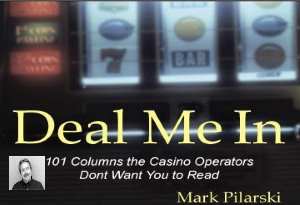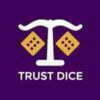Could you please recommend a good book on horse racing? Melvin H.
A $2 wager on an equine long-shot, overdue for the glue factory, can be an inexpensive diversion when the casino is pounding the hell out of your bankroll. And that, Melvin, is about all I know regarding horse racing. I have read a few books, yes, but putting them to practical use, I have not. I spend ten minutes with the Racing Form, then guess.
One of my favorite books, though, is by Andrew Beyer. Beyer has figured out a way to make the odds work for both himself and readers of his weekly racing column at the Washington Post. His book, Picking Winners: A Horse Player’s Guide, is a well-respected guide among the horse race community. And how can you not appreciate a person who skipped taking his senior-year Chaucer exam at Harvard, finding the 1966 Belmont Stakes a better education.
Although he blew $12,000 in Ivy League tutelage and left Harvard without a degree, he did collect a $13 payoff on Amberiod, cutting his losses for the day to $11,987.
Occasionally I will note that you use gambling quotes from our political ancestors. I didn’t realize they were such gamblers. Any of our former leaders stand out as chronic gamblers? Ralph C.
The willingness to risk and hope for the easy life was a hallmark of many of our early forefathers. No question, Andrew Jackson first comes to mind as the ultimate incessant gambler. Before he had turned thirty, he had twice staked all his worldly possessions on gambling events. In 1805 he killed a man and nearly died himself in a duel fought to settle an argument over the terms of a horse bet. When it came to horse racing, he was a rabid gambler. Winnings from his favorite horse, Truxton, helped pay his campaign expenses for his first losing presidential run in 1824. When he finally won room and board at the White House, he ran his own stable of horses in the Washington D.C. area. As Andrew Jackson once said, “You must risqué to win.”
In blackjack, when the deck is rich in aces and face cards, why does this favor the player? Also, when I have two face cards (20), is that a good time to insure my hand? Gary C.
There are many reasons why face cards favor the player. First, blackjacks will appear more often when there is a higher proportion of aces in the deck, and as you know, blackjacks pay the player 3 to 2, whereas the dealer gets no bonus. Second, the dealer will bust more when he has a “stiff” hand (12 through 16) because the dealer is forced by the rules of the game to hit. The player given the same opportunity would stand on stiff. Also, if the player is dealt a 10 or 11, he has the option to double the bet. Finally, if the player has a pair, he may split the pair into two hands, which can be very lucrative when the dealer again is showing a stiff up-card.
As to your second question, Gary, who is holding at least two of the cards the dealer needs to make their blackjack? YOU. Insuring a hand composed of two 10 cards on a single deck game gives the house too big of an advantage to make an insurance bet worthy of your hard-earned money.
Gambling thought of the week: “I’ve learned the lesson that the worst thing that can happen to a gambler is to let his recent losses or wins knock him off keel emotionally.” -Andrew Beyer




















